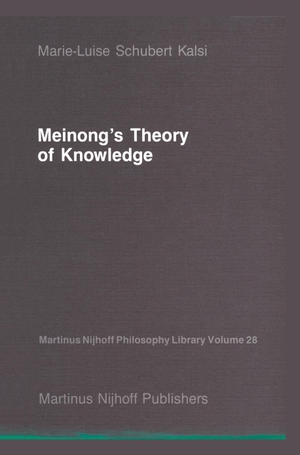Für statistische Zwecke und um bestmögliche Funktionalität zu bieten, speichert diese Website Cookies auf Ihrem Gerät. Das Speichern von Cookies kann in den Browser-Einstellungen deaktiviert werden. Wenn Sie die Website weiter nutzen, stimmen Sie der Verwendung von Cookies zu.
Cookie akzeptieren
Marie-Luise Schubert Kalsi
Meinong¿s Theory of Knowledge
- Springer Netherlands
- 2011
- Taschenbuch
- 148 Seiten
- ISBN 9789401081290
In recent years there has been a renewal of interest in Meinong's work; but since the bulk of it is still encased in his quite forbidding German, most students are limited to the few available translations and to secondary sources. Unfortunately Meinong has been much maligned - only in a few instances with good reason - and has consequently been dealt with lightly. Meinong stood at a very important junction of European philosophical and scien tific thought. In all fields - physics, chemistry, mathematics, psychology, philolo- revolutionary strides were being made. Philosophy, on the other hand, had run its post-Kantian course. New philosophical thinkers came from
Mehr
Weniger
zzgl. Versand
in Kürze